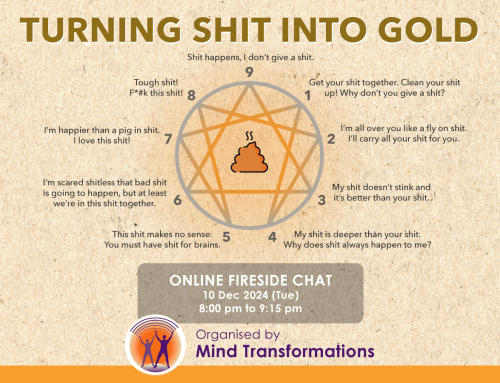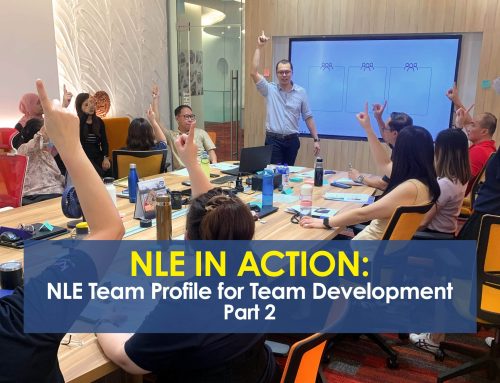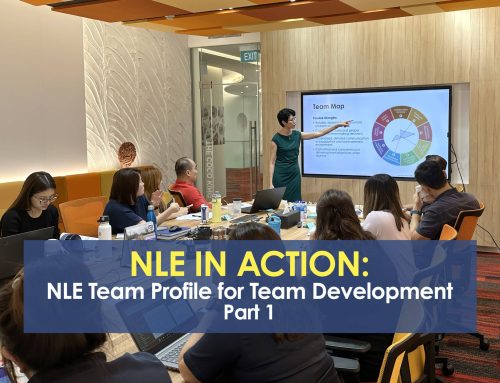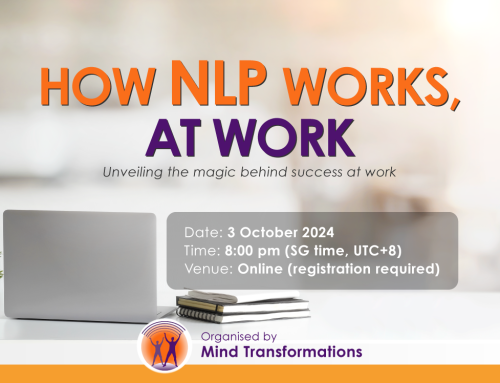By Alvin Yap
I run a venture capital business where we invest in cutting edge technologies in the Asian region. As you can imagine I deal with may types of people with starkly differing personality types. Some are particularly hard to deal with. One such case came up in the summer of 2000.
My partner at that time, Hong*, was a hard nosed, aggressive type who had little tolerance for mistakes, perceived incompetence and apparent dishonesty. He was hard on his staff, hard on his vendors and harder still when involved in multi-million negotiations.
I, on the other hand, am typically described as a people person and likable in general. I have no stomach for aggressiveness or overt and demeaning conflicts. I believe that in life one either can choose the path of velvet or the path filled with potholes. While it would appear that such a partnership would be difficult to work out, initially it served us well as we typically would play the “good cop, bad cop” in our negotiations with impressive results.
The Biggest Deal of My Career
Thus, on that fateful day in the middle of July 2000, we were gathered at the negotiations table to close the biggest deal of our careers. The company we would be investing in would be implementing Motorola’s cutting edge technology that would revolutionize the way cellular communications would work in Southeast Asia. The technology would cause a collapse in the existing business model of cellular phone companies and move the whole industry away from the pay-by-the-minute model to a fixed price, unlimited usage model. Such was the extent of the technological innovation.
The company founder, TE Liew* was an elderly gentleman.
In his early sixties, he sat thoughtfully looking at the contract before him. I observed as he scanned down the page: he started to turn the pages in a more determined manner as if to get quickly to the end of the 30-page document. Without too much effort, I could see his face getting redder as he pursed his lips in apparent disbelief. Suddenly he stood up and threw the document down and the table shouted, “This is nonsense! We might as well throw this into the garbage.”
I sat up immediately shocked at his outburst. I knew that the terms were somewhat biased in our favour but such is the way most lawyers draft their first draft. The terms were obviously subject to negotiations and I was sure he knew that. Surely having run his business for the last 25 years, he must have encountered such draft agreements. I was wrong. He started to blurt out words filled with passionate discontent and incomprehensible mutters. Finally he said in a loud voice, “Do you take me for a fool? What kind of contract is this? This is just nonsense. I do not need to do business with you at all. I have many other ways to raise capital to do this deal. This is the stupidest agreement I have ever seen!”
Toning Down the Anger
My mind raced quickly to determine how to calm him down. I did a two second review of all the NLP skills I had learned and decided that what was needed was to maintain my composure and look at it from his position. I wanted to acknowledge his outburst that I heard him loud and clear and we could surely calm down and find a amicable resolution to this apparent disagreement.
Then things got worse.
My partner suddenly stood up and shouted back, “If you are so smart, you go ahead and do it yourself. We do not want your business, anyway!”
I thought to myself, “Hey speak for yourself! I want his business…” Boy this was surely the wrong time to use the good-cop bad-cop routine.
I promptly took my partner to the side and told him to excuse himself and wait for me outside while I “handled” the situation. He reluctantly agreed, continuing to mutter words under his breath.
Mutual Agreement
I then turned to TE and said in an equally loud tone “Look I can see that you are very upset about the whole thing. I am too. I certainly do not want my clients to get upset over a FIRST DRAFT agreement.” He started to nod his head and I continued, “I certainly do not want to tell you how to run your business. You surely would know better than me. You will have control of the company with or without us. We are investing in your company because of your expertise, not ours.”
I continued to soften my voice and slowed down the pace.
“I am here to help you grow your business, but in the way that you want to. Please understand that I also have principles that would like to see a decent return on their money. They would like to put in certain provisions that would ensure that their money is protected. Surely you understand that, right? You see, you tell me what is it that you want and let us work out a plan that can meet both our needs. Mr Lee, I will walk away from this table if we do not come to a win-win agreement. I am sure you will too.” I could see him nodding slightly and his breathing relaxed. I smiled and said, “I can see that you agree with me.”
He started, “I have been doing business for 25 years and I do not want people to take advantage of my company. I brought you all in because I thought you can help me further my business. I am a fair person and I want to be treated fairly. I saw that the agreement was so lopsided. It made me think that I was being taken advantage of.”
I nodded in agreement and said “I really appreciate you giving us this opportunity to work with you. To be fair, let’s start from scratch and tell me how we can close this deal so that all parties can prosper and be protected.”
“OK, let’s start with the basic principle of fair play…”
That day marked the turning point in my career and I finally understood the power of pacing and leading a person’s reality to a more resourceful state.
I learned how critical it was to remain a resourceful state, which my partner was unable to. I learned that if there is a visible conflict, it is better to diffuse the emotionally charged situation by removing the antagonist. I learned how useful it is to have sensory acuity not only for visible physical attributes but also to be aware of tonality, tempo, breathing patterns and key words that a person uses constantly.
The most important thing I learned in this episode is that each person has a unique map of the world and it is very different from ours.
If we do not strive to understand their maps, we are indirectly communicating to them that they are not important. That is the last thing you want to communicate to your client.
Epilogue: We completed a new draft that day and several drafts after that. We did close that deal. But more important than the monetary value was the lesson that my NLP skills brought. These are now ingrained in my negotiations process. It saved me a sweet deal in the process.
*Names changed to protect the innocent.
Alvin G. Yap is a technology venture capitalist with operations in Malaysia, Singapore, Korea. He completed his NLP Practitioner Training in 2001 and NLP Master Practitioner in 2003.
[inf_infusionsoft_inline optin_id=”optin_2″]






